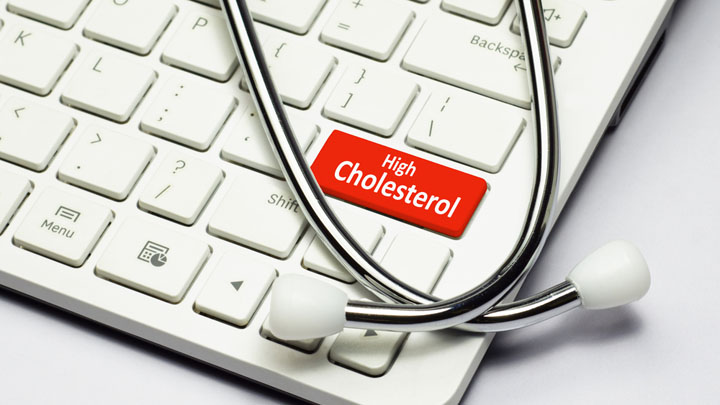Do you have high cholesterol? Here’s what you should know about Ubiquinol

Heart health is a serious topic in Australia – cardiovascular disease kills one Australian every 12 minutes. More than 5 million Australians experience high cholesterol, with 2.8 million Australians taking statin medication to control cholesterol levels. If you are one of the 2.8 million taking statins, there’s a good chance your doctor may have mentioned Ubiquinol (the active form of CoQ10) supplements. If you’re wondering what the fuss is all about, or what in fact Ubiquinol does and how it relates to statins, leading cardiologist Dr Ross Walker has the top five things you need to know about Ubiquinol.
Ubiquinol is found naturally in your body
Ubiqunol plays a vital role in keeping cellular energy production at its peak and is essential for a healthy heart. Ubiquinol is the active form of CoQ10, which is one of the most powerful antioxidants found naturally in every living cell of the human body. However, as we age, Ubiquinol levels in our body start to decrease, contributing to a loss of energy and stamina. This is compounded by free radical activity, which reduces cellular energy levels and causes cell damage through oxidation.
High levels of Ubiquinol are found in healthy hearts
In addition to providing energy for our cells, Ubiquinol is an antioxidant which acts to balance oxidative stress by helping to control free radicals, as well as help maintain healthy LDL cholesterol levels in healthy people. Unfortunately, as we age, stress or over exert ourselves mentally and physically the natural levels of Ubiquinol in our body decline. So from about the age of 30, we may need to replenish our Ubiquinol levels.
It comes in two forms
CoQ10 has two forms: the oxidized form, named Ubiquinone (conventional CoQ10), and the reduced form which is Ubiquinol (the active form of CoQ10). More than 90 % of the CoQ10 in the plasma of a healthy individual is found in the reduced form, Ubiquinol, the form of CoQ10 that is readily synthesized by the human body. Whilst Ubiquinone must be converted into Ubiquinol in order to be used in the body, Ubiquinol does not require any conversion process, making it much easier for your body to immediately absorb and reap the benefits.
It can assist with statin symptoms
Approximately 2.8[i] million Australians take statins to lower their LDL cholesterol levels. Statins are an integral part of treating cholesterol issues in Australia- countless studies show that statins can reduce the risk of heart attack or stroke by 20%.
However, this does not mean there isn’t room for evidence-based supplementation that can complement a statin prescription.
One particular side effect that is common amongst statin-takers is statin-induce myopathy, a condition where once experiences muscle tension, weakness and pain as a result of taking statins. In a 2012 study, [ii] researchers found that patients who were taking statins and supplemented with Ubiquinol experienced a reduction in muscle pain by up to 54% and a reduction in muscle weakness by 44%.
There is also a growing body of research providing evidence that Ubiquinol supplementation can assist in lowering levels of LDL cholesterol with consistent use. A 2011 study[iii] studied the effect of Ubiquinol supplementation on lipoprotein (LDL) cholesterol plasma levels and found both a reduction in LDL cholesterol and an increase in CoQ10 levels within the body of each subject.
It can strengthen your heart
Researchers at Christian Albrechts University found that Ubiquinol is highest in healthy hearts and lower in failing hearts. The study investigated the link between levels of CoQ10 and a protein that is produced by an unhealthy heart. When heart failure develops or worsens, the heart produces a protein called N-terminal-pro-BNP (NT-pro-BNP). The levels of this protein increase as heart failure symptoms worsen and decrease as the condition stabilises. The study found that high levels of NT-pro-BNP are closely linked to low levels of Ubiquinol (the reduced form of Co-enzyme Q10). This is one of the reasons that I recommend Ubiquinol to any of my patients who may have a predisposition to heart disease, or are already experiencing heart-related concerns.
There are many national brands that make products that contain Ubiquinol.
Ask your health practitioner or local pharmacist for the best product for you.








 Proudly Australian owned and operated
Proudly Australian owned and operated